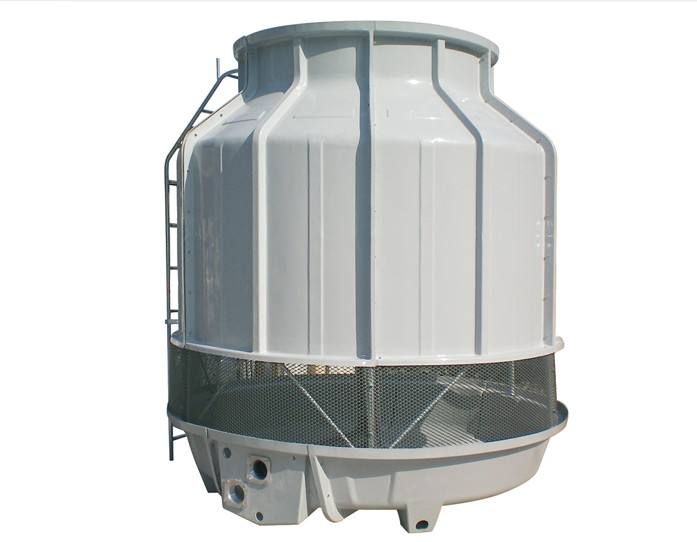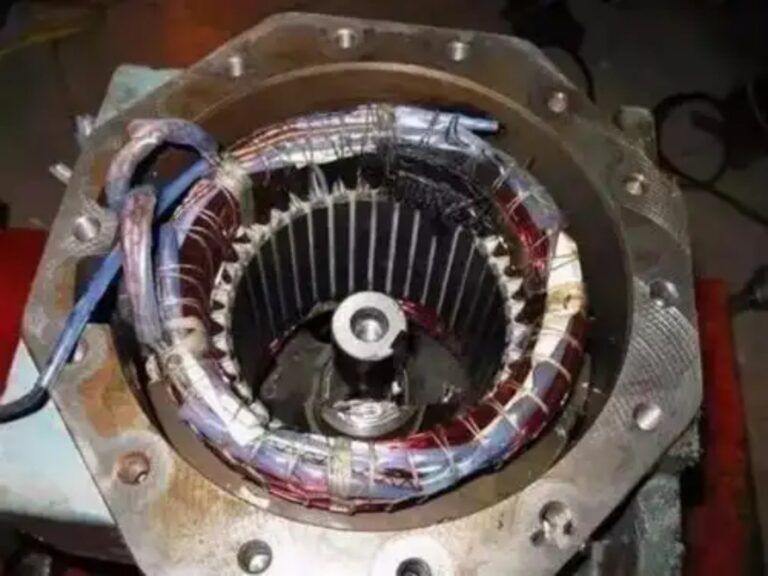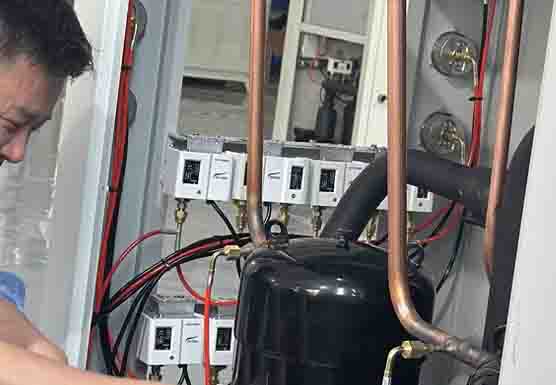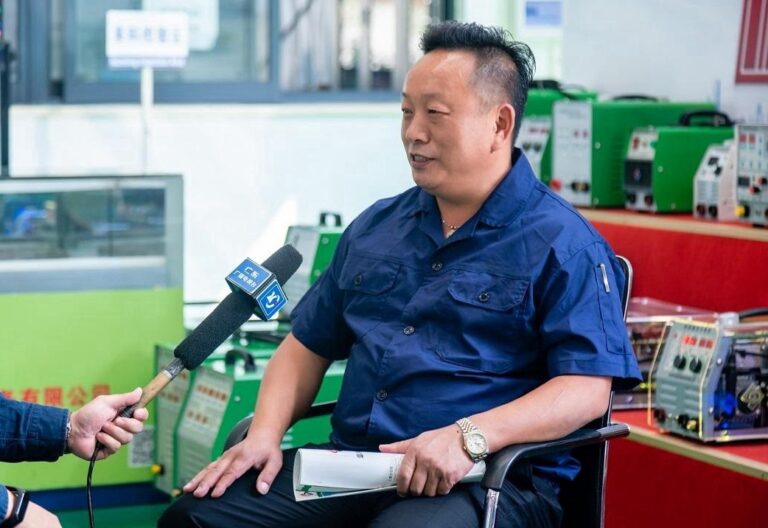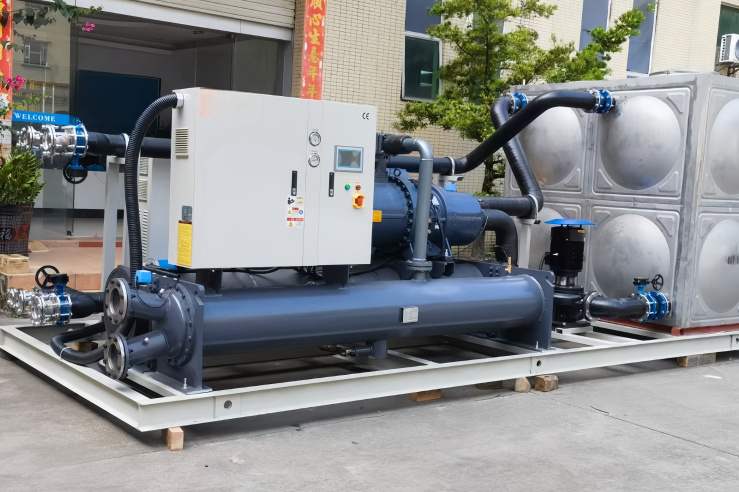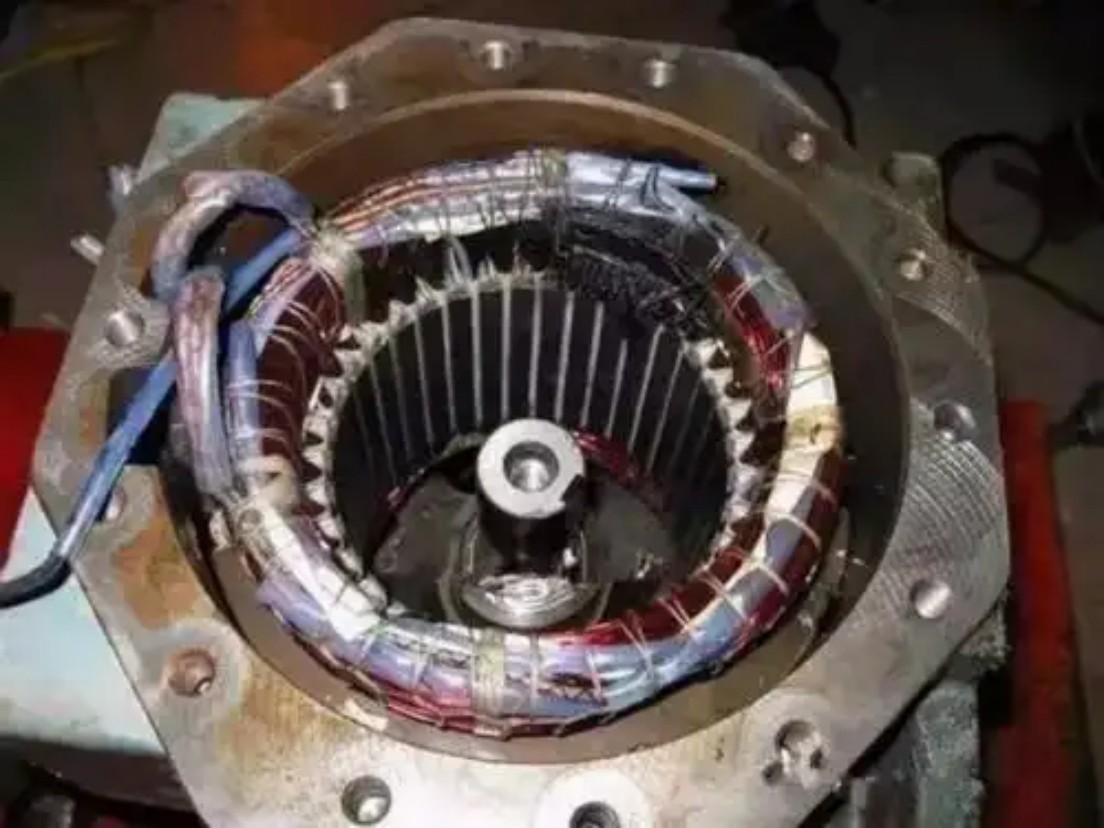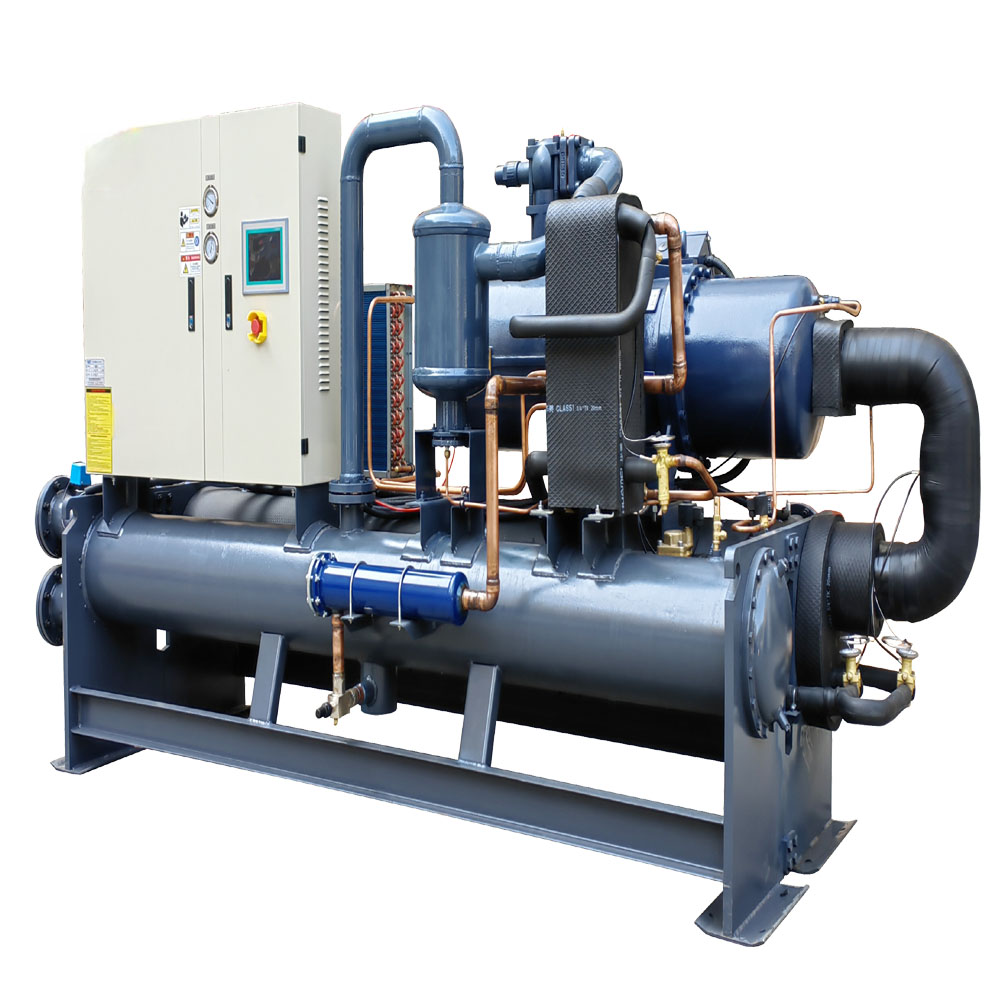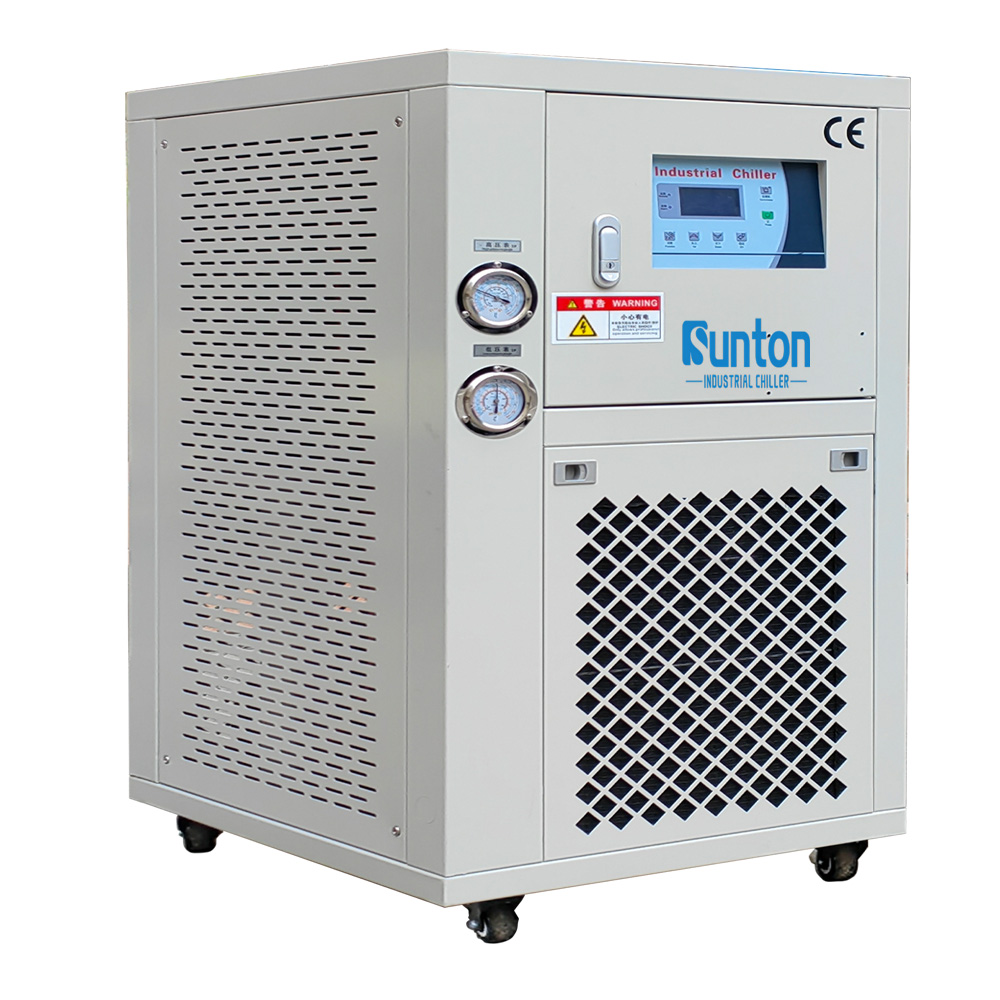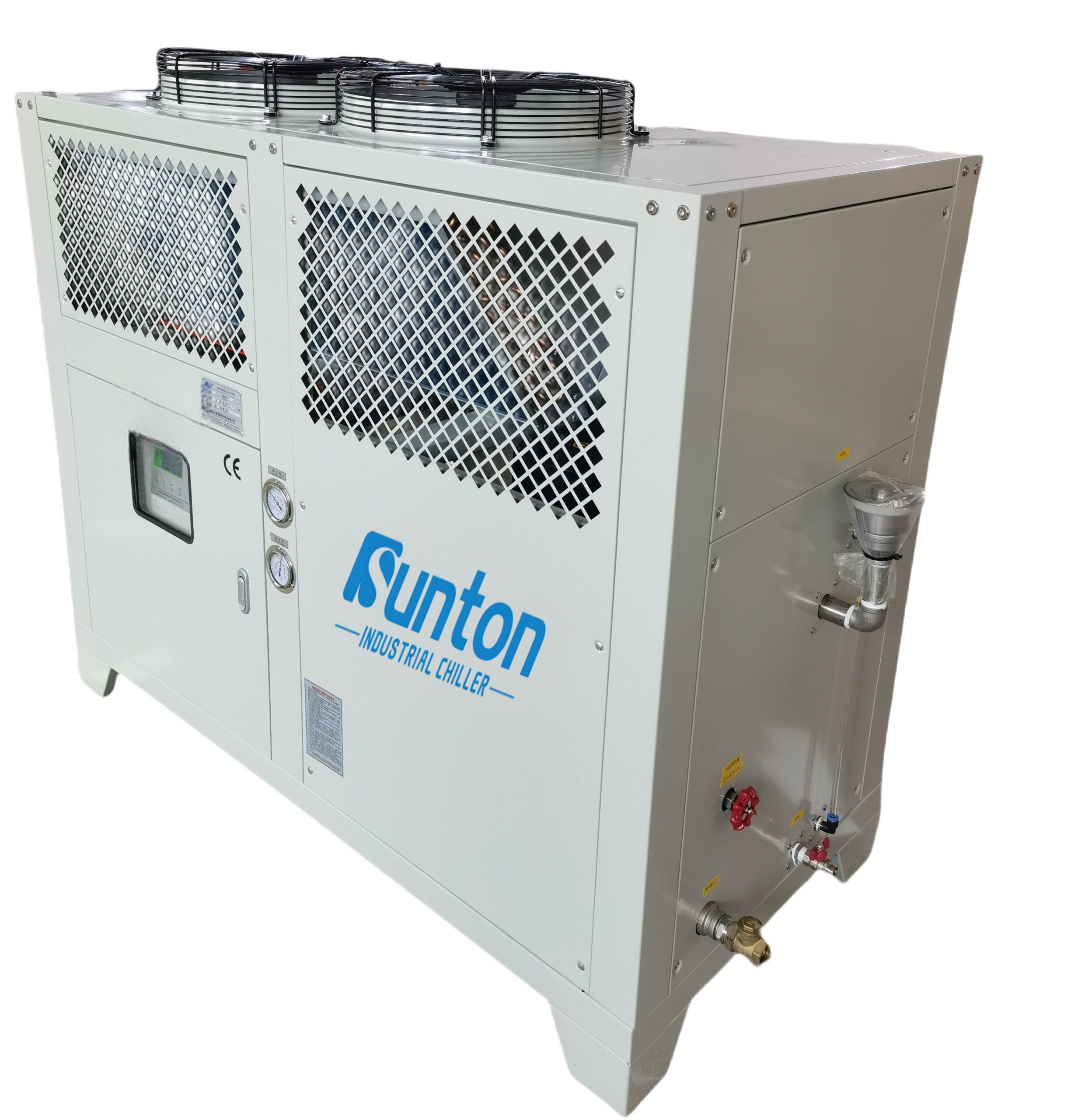-
Далиншань Индустриальный Гуандун
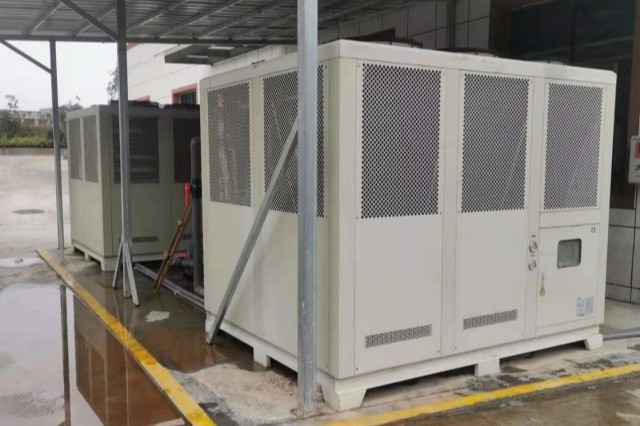
экстракционные охладители для охлаждения в процессе экстракции CO2
Раскрытие эффективности: полное руководство по чиллерам с извлечением CO2 для промышленного применения
В этой статье рассматривается важнейшая роль вытяжные охладители в различных отраслях промышленности, подчеркивая их значимость в таких процессах, как CO2 извлечение и разнообразные приложения, которые они обслуживают. От повышения качества КБР в индустрии каннабиса для обеспечения точного контроль температуры в лабораториях, это всеобъемлющее руководство предоставит бесценные идеи. Как читатель, вы узнаете, как эти сложные системы охлаждения Оптимизируйте эффективность, поддерживайте целостность продукта и внедряйте инновации в различных секторах. Независимо от того, работаете ли вы в пластмассовой, пищевой, химической или электронной промышленности, понимание нюансов экстракции чиллеры имеет решающее значение для достижения превосходной производительности и качества. Если вы ищете передовые решения для охлаждения для своих промышленных нужд, эта статья обязательна к прочтению, поскольку она предоставляет знания и опыт, необходимые для принятия обоснованных решений и улучшения вашей работы. Я провел годы, работая с промышленными охладителями, и я рад поделиться своими знаниями с вами.
Оглавление
Что такое экстракционный охладитель и почему он важен?
Ан вытяжной охладитель это специализированный тип охладитель разработаны для обеспечения точного охлаждения различных промышленных процессов, особенно тех, которые включают экстракция растворителем. Эти чиллеры имеют решающее значение для поддержания низких температур, необходимых в таких процессах, как экстракция этанолом и Извлечение CO2, гарантируя чистоту и качество конечного продукта. По моему опыту, правильный охладитель может иметь существенное значение в эффективности работы. Например, в извлечение каннабиса промышленность, поддержание определенного диапазон температур имеет жизненно важное значение для извлечения таких соединений, как КБР и ТГК не ухудшая их. Как производитель промышленных охладителей, я своими глазами видел, насколько важны эти системы в различных отраслях.
Используя вытяжной охладитель гарантирует, что процесс экстракции остается эффективным и последовательным. Например, в Извлечение CO2, растворитель, который представляет собой диоксид углерода, необходимо охладить до жидкого состояния для эффективного растворения и извлечения желаемых соединений из растительный материал. Этот процесс требует охладитель способный достигать и поддерживать низкие температуры, часто ниже -20°C. Возможность контролировать температура точно предотвращает извлечение нежелательных соединений и обеспечивает высокое качество конечного продукта. Наша приверженность качеству также очевидна в нашем производственном процессе, где мы используем только лучшие компоненты, включая высококачественные теплообменники и компрессорыМы в The Water Chiller гордимся тем, что поставляем первоклассные промышленные решения для охлаждения, гарантируя, что наши чиллеры удовлетворять жестким требованиям различных отраслей промышленности. Наши продукты предназначены для обеспечения надежность и производительность, что делает их экономически эффективный решение для ваших нужд охлаждения.
Как работает извлечение CO2 и какую роль играет охладитель?
Извлечение CO2 это сложный метод извлечения который использует сверхкритический диоксид углерода в качестве растворитель для извлечения соединений из растительный материал. Процесс начинается с CO2 в газообразном состоянии, подвергается давлению и охлаждению до температуры, пока не станет жидкостью. Эта жидкость CO2 затем действует как растворитель, проходящий через растительный материал в первая палата экстрактора для растворения желаемых соединений.
The охладитель играет ключевую роль в этом процессе, поддерживая CO2 в необходимое время низкая температура для эффективного извлечение. А низкотемпературный охладитель система имеет решающее значение для эффективности Извлечение CO2 потому что он сохраняет CO2 в жидком состоянии, что позволяет ему проникать растительный материал и извлечь нужные соединения, такие как каннабиноиды. После извлечение, смесь CO2 и извлеченные соединения перемещаются во вторую камеру, где давление снижается, в результате чего CO2 вернуться в газообразное состояние и оставить после себя извлеченные соединения. Наконец, CO2 газ часто рециркулируется обратно через охладитель для охлаждения и повторного использования в процесс экстракции. Для нас особенно важно предоставить нашим клиентам охладитель права размер. Ан негабаритный или низкорослый единица может быть чрезвычайно неэффективный и привести к проблемам. Важно учитывать такие факторы, как тепловая нагрузка и температура охлаждающей жидкости при выборе охладитель. размер компрессора является критическим фактором. Если компрессор слишком мал, ему будет трудно поддерживать желаемый температура, что приводит к неэффективный эксплуатация и потенциальный ущерб.
Почему контроль температуры имеет решающее значение при извлечении этанола?
В экстракция этанолом, поддерживая точный контроль температуры имеет решающее значение для обеспечения качества и чистоты извлекаемых соединений. этанол является высокоэффективным растворитель используется для извлечения широкого спектра соединений, включая КБР и ТГК, от каннабис. Однако, температура при котором извлечение может существенно повлиять на результат.
Используя охладитель чтобы сохранить этанол на постоянной основе, низкая температура имеет важное значение. Например, отдыхающий the этанол до отрицательных температур помогает предотвратить экстракцию нежелательных веществ, таких как хлорофилл и воски, которые могут негативно повлиять на вкус и чистоту конечного продукта. Когда процесс экстракции проводится при более высоких температурах, эти нежелательные соединения с большей вероятностью будут извлечены вместе с целевыми соединениями. Кроме того, точные контроль температуры гарантирует, что растворитель остается эффективным на протяжении всего процесс экстракции, что приводит к более высоким урожаям и лучшему качеству. Использование охладитель разработан для низкая температура приложения имеют решающее значение здесь. Эти чиллеры использовать специализированные хладагенты и компрессоры разработаны для эффективной работы при экстремально низких температурах.
Каковы основные компоненты системы охлаждения?
А система охлаждения состоит из нескольких ключевых компонентов, которые работают вместе, чтобы обеспечить эффективное охлаждение. Понимание этих компонентов может помочь вам оценить сложность и эффективность этих систем. Основные компоненты включают компрессор, испаритель, теплообменник, и хладагент.
The компрессор это сердце система охлаждения. Он оказывает давление на хладагент газ, повышая его температура и подготовка его к следующему этапу. Высокое давление, высокаятемпература Затем газ перемещается в конденсатор, где он охлаждается и превращается в жидкость. Эта жидкость хладагент затем проходит через расширительный клапан, где его давление и температура значительно уменьшаются. Наконец, холод хладагент входит в испаритель, где он поглощает тепло из технологической жидкости, охлаждая ее. хладагент, теперь газ низкого давления, возвращается в компрессор чтобы начать цикл снова. В извлечение приложения, испаритель часто связано с теплообменник который охлаждает растворитель или технологической жидкости. Каждый из этих компонентов играет решающую роль в чиллер способность обеспечить постоянное и эффективное охлаждение. Мы являемся поставщик из чиллеры для различных отраслей промышленности, включая производство пластмасс, продуктов питания и напитков, а также химическую промышленность.
Как охладители повышают эффективность в индустрии каннабиса?
В каннабис промышленность, чиллеры играют важную роль на различных этапах обработки, от извлечение к зимовке и дистилляции. Способность поддерживать точные контроль температуры имеет решающее значение для производства высококачественной каннабис продукты. Чиллеры используются для охлаждения растворители нравиться этанол и CO2 к низкие температуры, обеспечивая эффективное извлечение каннабиноидов и терпенов без извлечения нежелательных соединений.
Например, при подготовке к зиме, чиллеры используются для охлаждения извлеченный масло очень низкие температуры, заставляя жиры и воски затвердевать и отделяться от масла. Этот процесс приводит к более чистому, более очищенному продукту. Аналогично, при дистилляции, чиллеры помочь поддерживать правильный температура для разделения различных каннабиноидов и терпенов на основе их точек кипения. Обеспечивая точное и надежное охлаждение, чиллеры давать возможность каннабис переработчики для достижения более высокой урожайности, лучшего качества продукции и большей согласованности. извлечение каннабиса Рынок быстро рос, и спрос на высококачественные чиллеры значительно увеличилось. Удивительно, как чиллеры стали настолько неотъемлемой частью производства высококачественных каннабис продукты. Как поставщик, я видел спрос на надежные чиллеры резко возросли в последние годы.
Что следует учитывать при выборе производителя чиллера?
Выбор правильного производитель охладителей является критическим решением, которое может повлиять на эффективность и успех ваших операций. Необходимо учитывать несколько факторов, чтобы убедиться, что вы выбрали надежного и авторитетного поставщик. Во-первых, рассмотрите опыт и знания производителя в отрасли. Производитель с проверенной репутацией производства высококачественной продукции чиллеры с большей вероятностью предоставит продукт, который соответствует вашим потребностям. Мы понимаем важность правильного калибровка и проектирование для вашего конкретного применения.
Во-вторых, оцените ассортимент продукции, предлагаемой производителем. Разнообразная линейка продукции указывает на то, что производитель может удовлетворить различные потребности и отрасли. Ищите чиллеры которые предлагают такие функции, как точный контроль температуры, энергоэффективность и прочная конструкция. Кроме того, рассмотрите послепродажную поддержку, предоставляемую производителем. Надежный поставщик должны предлагать комплексную техническую поддержку, услуги по техническому обслуживанию и легкодоступные запасные части. Здесь, в The Water Chiller, мы гордимся тем, что предлагаем исключительное обслуживание клиентов и техническую поддержку. Как надежный поставщик промышленного чиллеры, мы предлагаем широкий ассортимент продукции, предназначенной для удовлетворения потребностей различных отраслей промышленности. Наши чиллеры известны своими надежность и производительность, что делает их популярным выбором среди наших клиентов. Для получения более подробной информации посетите наш связанные категории раздел на нашем сайте.
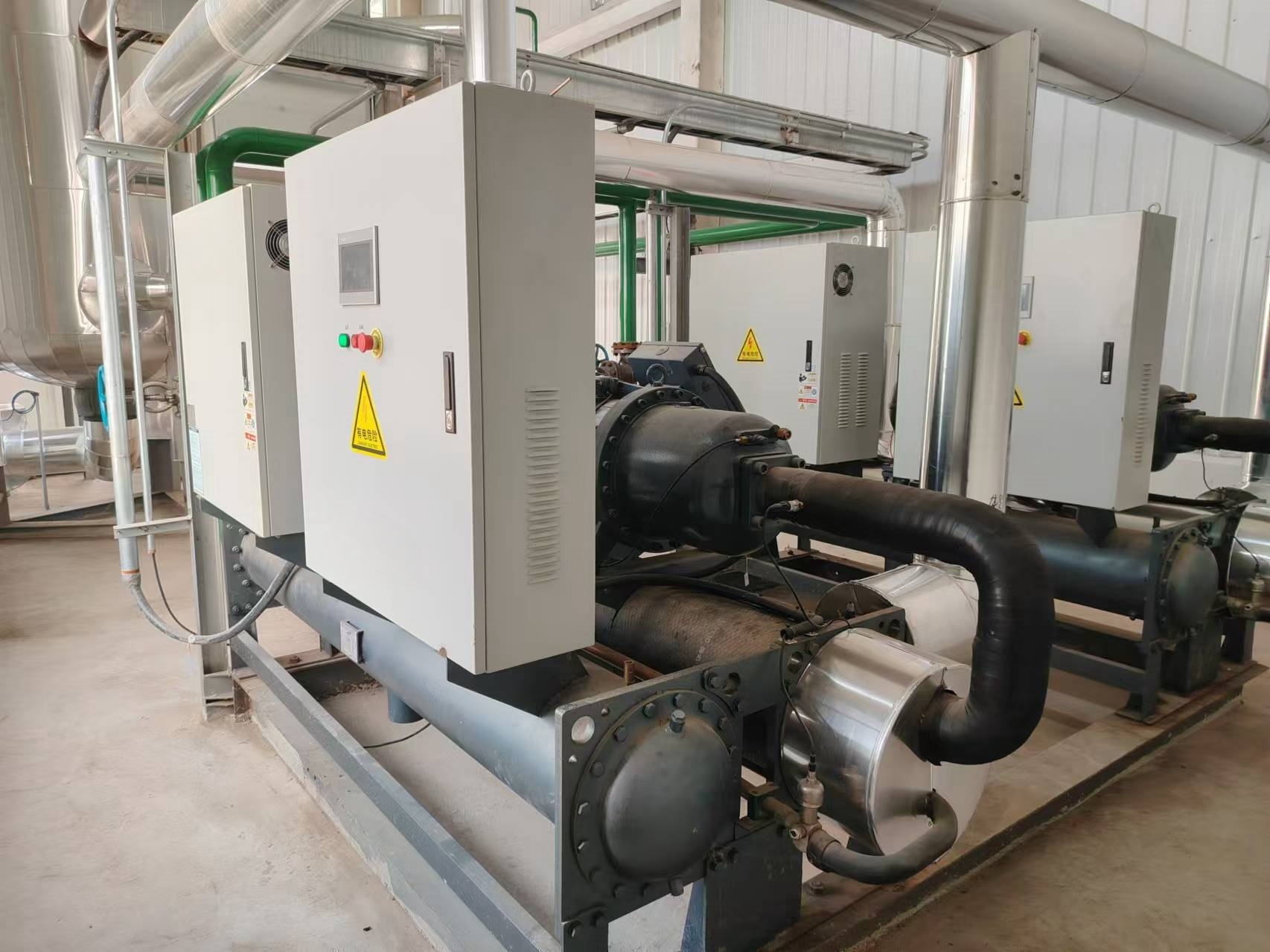
Чем чиллер с воздушным охлаждением отличается от чиллера с водяным охлаждением?
С воздушным охлаждением и чиллеры с водяным охлаждением есть два основных типа чиллеры используются в промышленных приложениях. Хотя оба служат одной и той же фундаментальной цели — охлаждению, они различаются по принципу работы и пригодности для разных сред. Чиллеры с воздушным охлаждением использовать окружающий воздух для рассеивания тепла от хладагент. Обычно их проще устанавливать и обслуживать, так как им не требуется отдельный источник воды или градирня. Подробнее об этом можно узнать на нашей странице, посвященной Винтовые чиллеры с воздушным охлаждением.
Чиллеры с водяным охлаждением, с другой стороны, используйте воду для охлаждения хладагент. Они, как правило, более энергоэффективны, чем чиллеры с воздушным охлаждением, особенно в жарком климате, так как вода является более эффективным носителем тепла, чем воздух. Однако, чиллеры с водяным охлаждением требуется источник охлаждающей воды, такой как Градирня, и могут иметь более высокие затраты на установку и обслуживание. Выбор между с воздушным охлаждением и чиллер с водяным охлаждением зависит от таких факторов, как конкретное применение, доступные ресурсы и условия окружающей среды.
Каковы области применения чиллеров в различных отраслях промышленности?
Чиллеры используются в широком спектре отраслей промышленности для обеспечения охлаждения различных процессов и приложений. В пластмассовой и резиновой промышленности, чиллеры используются для охлаждения пресс-форм и оборудования, обеспечивая стабильное качество продукции и сокращая время цикла. В машиностроительной промышленности, чиллеры помочь сохранить температура режущих инструментов и заготовок, предотвращая перегрев и продлевая срок службы инструмента.
В пищевой промышленности и производстве напитков чиллеры имеют решающее значение для таких процессов, как пивоварение, ферментация и пастеризация, где точные контроль температуры имеет важное значение для качества и безопасности продукции. В химической и фармацевтической промышленности, чиллеры используются для охлаждения реакторов, конденсаторов и другого оборудования, обеспечивая безопасные и эффективные химические реакции. Для пищевой промышленности мы предлагаем специальные Охладители молочного молока. В лабораториях и научно-исследовательских институтах, чиллеры обеспечивают охлаждение аналитических приборов, таких как спектрометры и хроматографы, гарантируя точные и надежные результаты. Универсальность чиллеры делает их незаменимым инструментом во многих промышленных условиях.
Каковы преимущества использования низкотемпературного охладителя?
Низкотемпературные охладители предназначены для обеспечения охлаждения на очень низкие температуры, как правило, ниже -20°C. Эти специализированные чиллеры предлагают несколько преимуществ в приложениях, где требуются чрезвычайно низкие температуры. Одним из основных преимуществ является их способность поддерживать точные контроль температуры в низкие температуры, что имеет решающее значение в таких процессах, как экстракция этанолом и Извлечение CO2.
Низкотемпературные охладители также используются в таких отраслях, как фармацевтика и биотехнология, где они необходимы для сохранения биологических образцов, хранения термочувствительных материалов и проведения низкотемпературных реакций. Кроме того, низкотемпературные охладители может помочь повысить эффективность и выход определенных химических процессов, позволяя реакциям происходить при оптимальных температурах. Если вам нужно низкотемпературный охладитель, вы можете узнать больше на нашей странице о Решения по охлаждению с помощью низкотемпературных охладителей. Использование низкотемпературные охладители может привести к повышению качества продукции, сокращению отходов и повышению общей эффективности процесса. Я помню, как работал над проектом, где низкотемпературный охладитель было необходимо для поддержания стабильности высокочувствительного химического соединения. Было удивительно видеть, насколько точны контроль температуры был.
Как запросить расценки на промышленный чиллер?
Запросить расценки для промышленного охладитель это простой процесс, когда вы работаете с авторитетной компанией поставщик как и мы. Первый шаг — собрать информацию о ваших конкретных требованиях к охлаждению, например, желаемое диапазон температур, тип растворитель или охлаждаемой жидкости, а также тепловой нагрузки вашего процесса. Вы можете узнать больше о том, какую информацию предоставить на нашей странице, объясняющей, как Запросить расценки.
Далее, свяжитесь с производитель охладителей или поставщик обсудить ваши потребности и получить подробную цитировать. Знающий поставщик сможет порекомендовать наиболее подходящий охладитель модель для вашего приложения и предоставить комплексное цитировать который включает в себя цены, спецификации и информацию о доставке. Когда запросить расценки, обязательно предоставьте как можно больше подробностей о вашем приложении, чтобы обеспечить точную и индивидуальную рекомендацию. Кроме того, узнайте о доступных опциях, таких как энергосберегающие функции, индивидуальные модификации и послепродажная поддержка.
Часто задаваемые вопросы
В чем разница между чиллерами с воздушным и водяным охлаждением?
Чиллеры с воздушным охлаждением использовать окружающий воздух для отвода тепла, в то время как чиллеры с водяным охлаждением используйте воду. С воздушным охлаждением Устройства проще в установке, но менее эффективны в жарком климате. С водяным охлаждением Установки более эффективны, но требуют источника воды и Градирня.
Как работает охладитель в процессе извлечения CO2?
В Извлечение CO2, а охладитель охлаждает углекислый газ до жидкого состояния, позволяя ему действовать как растворитель для извлечения соединений из растительный материал.
Почему важен контроль температуры при извлечении этанола?
Контроль температуры в экстракция этанолом предотвращает экстракцию нежелательных веществ, таких как хлорофилл и воски, обеспечивая более чистый продукт.
Каковы основные компоненты системы охлаждения?
Основные компоненты включают в себя: компрессор, конденсатор, расширительный клапан и испаритель. Каждый играет свою роль в охлаждение цикл.
Как выбрать охладитель подходящего размера для моего применения?
Выбор правильного размер включает в себя учет таких факторов, как тепловая нагрузка, температура охлаждающей жидкости, и особые требования к охлаждению вашего процесса. Недостаточно большой или слишком большой охладитель может привести к неэффективности.
Какие отрасли промышленности выигрывают от использования промышленных чиллеров?
Такие отрасли, как производство пластмасс, машиностроение, пищевая промышленность, химическая промышленность, фармацевтика, электроника, лазерная промышленность, полиграфия, медицина, лаборатории и центры обработки данных, — все они получают выгоду от использования чиллеры для контроль температуры.
Краткое содержание
- Вытяжные охладители необходимы для поддержания точной температуры в различных промышленных процессах.
- Извлечение CO2 использует сверхкритический диоксид углерода в качестве растворитель, с чиллеры обеспечение CO2 остается в жидком состоянии для эффективного извлечение.
- Контроль температуры имеет решающее значение в экстракция этанолом для предотвращения экстракции нежелательных соединений и обеспечения чистоты продукта.
- Ключевые компоненты система охлаждения включают в себя компрессор, конденсатор, расширительный клапан и испаритель.
- В каннабис промышленность, чиллеры повышение эффективности и качества продукции в таких процессах, как извлечение, вымораживание и дистилляция.
- Выбор правильного производитель охладителей При этом учитывается их опыт, ассортимент продукции и послепродажная поддержка.
- С воздушным охлаждением и чиллеры с водяным охлаждением Различаются по принципу действия, выбор зависит от области применения и условий окружающей среды.
- Чиллеры используются в различных отраслях промышленности, включая производство пластмасс, машиностроение, пищевую промышленность, химическую промышленность, фармацевтику и лаборатории.
- Низкотемпературные охладители обеспечивают точное охлаждение при очень низкие температуры, что приносит пользу таким отраслям, как фармацевтика и биотехнологии.
- Запросить расценки для промышленного охладитель включает предоставление подробной информации о ваших потребностях в охлаждении авторитетному поставщик.
